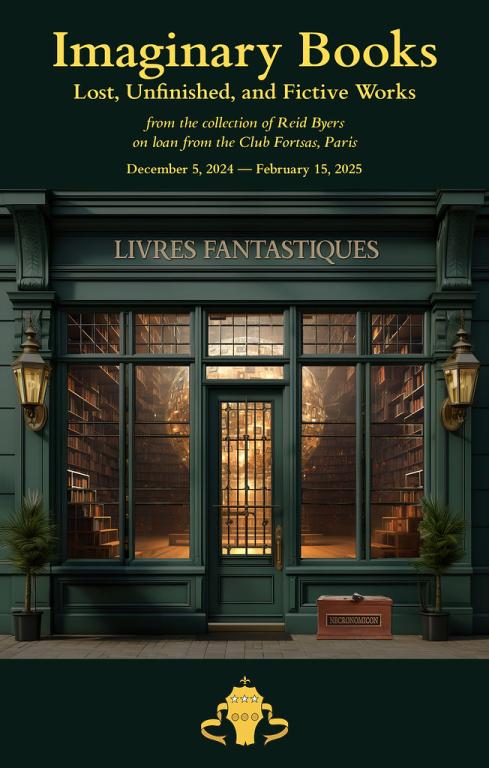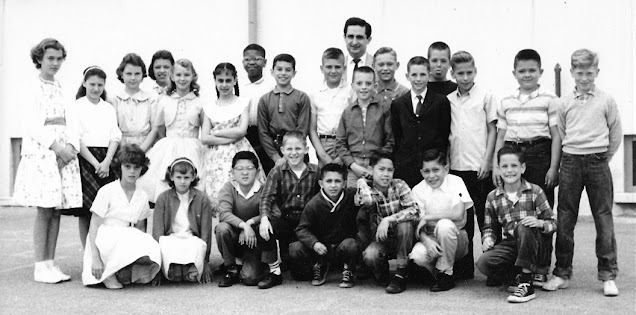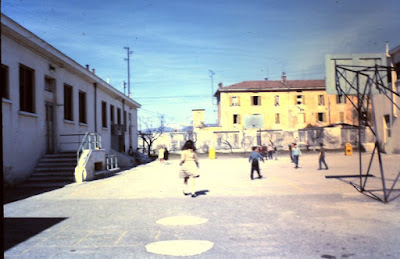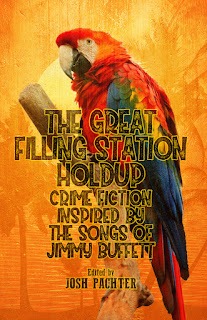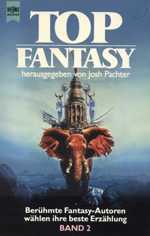First of all, there have been some fabulous posts written lately about words, language, etc. Thank you all for giving me something to look up to.
Secondly, thank you to Fred Clark, writer of the Slacktivist blog, for his marvelous "Trap Streets, Mountweazels, and Made Up Words." (Link is above) What you read is his, with a few notes of my own. So, let's get going!
I love this story from the Guardian, “A whimsical new exhibition assembles a range of books that don’t exist.”
This exhibit is just so much fun. It’s people both having fun and creating fun by designing and presenting editions of these “books that don’t exist.”
That includes several categories here, including “lost books” (real texts for which we have no surviving copies), “unfinished books,” and — my favorite section — “fictive books.” These are “books that exist only in other books”:
This includes Rules & Traffic Regulations That May Not Be Bent or Broken, a driver’s handbook mentioned in Norman Juster’s The Phantom Tollbooth, which looks much like a traveler’s manual from the 1960s. Or The Songs of the Jabberwock, bound in purple and printed backwards, “pretty much as Alice found it sitting right inside the mirror”, said [Reid] Byers. A copy of Nymphs and Their Ways, glanced by Lucy on Mr Tumnus’s shelf in The Lion, The Witch and the Wardrobe, decorated with a Romantic-era painting of bathing women. And a maroon-colored version of The Lady Who Loved Lighting by Clare Quilty, who was murdered by Humbert Humbert in Vladimir Nabokov’s Lolita – though, as Humbert Humbert is a famously unreliable narrator, we don’t really know if he even existed. It’s a unique specimen of the collection – “a book written by a character who does not exist, even in the book of origin. So it’s doubly imaginary,” Byers explained.
Oooh. This is like a library or book-shop version of my ever-growing playlist of songs that exist only in other songs (“The Tennessee Waltz,” “The Monster Mash,” “Night of the Johnstown Flood,” etc.).
But anyway, Adrian Horton’s article on this exhibit also taught me a fantastic, new-to-me word:
Imaginary Books is, as Byers will concede, a true and sincere gag, down to its listed “sponsorship” by the Mountweazel Foundation in Faraway Hills, New York. (A mountweazel being, of course, a term for a fake entry in a reference work, usually planted to catch copyright infringement.)
The etymology of “mountweazel” is just wonderful:
The neologism Mountweazel was coined by The New Yorker writer Henry Alford in an article that mentioned a fictitious biographical entry intentionally placed as a copyright trap in the 1975 New Columbia Encyclopedia. The entry described Lillian Virginia Mountweazel as a fountain designer turned photographer, who died in an explosion while on assignment for Combustibles magazine. Allegedly, she was widely known for her photo-essays of unusual subject matter, including New York City buses, the cemeteries of Paris, and rural American mailboxes. According to the encyclopedia’s editor, it is a tradition for encyclopedias to put a fake entry to trap competitors for plagiarism. The surname came to be associated with all such fictitious entries.
That’s from the Wikipedia entry on “Fictitious entries,” which makes me wonder if Wikipedia itself has any. That entry also mentions “trap streets,” a form of fictitious entry that I’ve been fascinated with ever since I was a kid on a bicycle.
Back in middle school, my friends and I went everywhere on our bikes. We usually just wandered, but sometimes we planned long journeys using a road atlas of Middlesex County. That’s how we learned about trap streets.
Our journeys usually began from Doug’s house. He lived on Rosewood Drive, in Piscataway, a short street that ran between two dead ends, like the crossbar on a capital H.
but it’s not what our county atlas showed. That atlas included a street that didn’t exist. It had an “Elmwood Drive” connecting those two dead-end streets south of Rosewood. We were confounded by this mystery. We took the road atlas and pedaled down to the dead ends of both Glenwood and Redwood, confirming with our own eyes and feet that no such thing as “Elmwood Drive” existed where we stood. It was still all just scrubby woods with bike trails that we avoided because that was where the Big Kids hung out. (Avoiding the Big Kids is an important rule during the summers when you’re in middle school.)
We presented this mystery to Doug’s dad, who explained to us about “trap streets” and how map-makers had to invent and include small errors to defend their copyright against plagiarists who might try to steal their work. We were fascinated by this idea — particularly after he suggested that there were probably small, deliberately false details on every page of that road atlas.
Eve's Note 1: I have literally driven through small towns that don't exist on the road map, and I'm sure don't show up on GPS. Why not streets? Some great ideas here, fellow-writers!
Eve's Note 2: My favorite word of all in this article is: “[E[squivalience.” which is a made-up word meaning “the willful avoidance of one’s official responsibilities.” This needs to be spread far and wide.
Eve's Note 3: Imaginary books have been written about long before the Guardian article Fred mentions. In Colette's My Apprenticeships she writes about Paul Masson, writer who worked at the Bibliothèque Nationale de France in the Catalogue Department to stay live. One time Colette saw him working on a list of titles, and she asked what they were. He told her they were titles of books that theBibliothèque Nationale did not have, but should have and was putting them into the catalog. When she asked, "But why? If the books don't exist?" he replied, "Ah! I can't do everything."
Ah, indeed.
